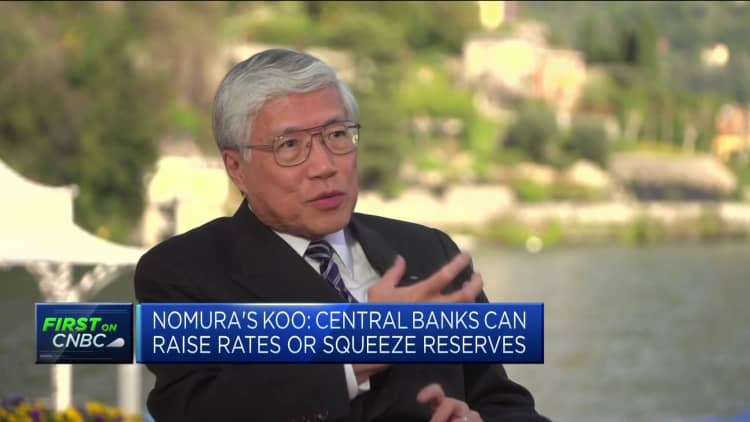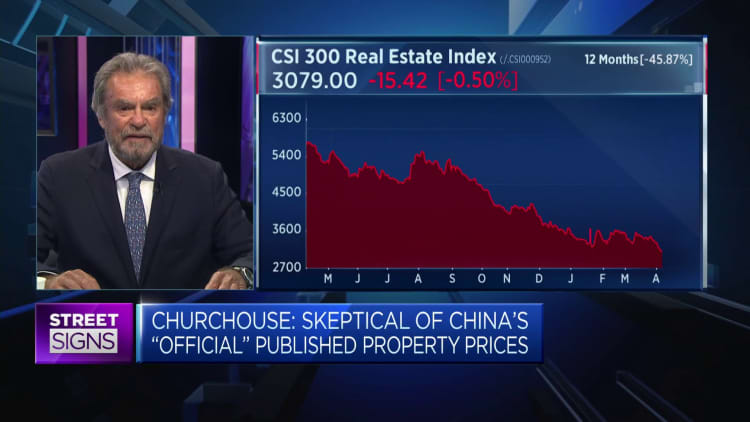Pictured here is a real estate project under construction in Huai ‘an city, Jiangsu province, China, on April 8, 2024.
Future publication | Future publication | Getty Images
BEIJING — China needs to convince people that house prices are rising for economic activity to resume, Richard Koo, chief economist at Nomura Research Institute, told CNBC’s Steve Sedgwick last week.
Business and consumer appetite for new loans got off to a tepid start to the year, while home prices fell at a steeper pace in January than in February, according to Goldman Sachs analysis.
In other words, as Koo warned last year, China could be entering a “balance sheet recession,” similar to that experienced by Japan during its economic crisis.
“In order for them to come back and borrow money, we need a narrative that says, okay, this is the bottom of prices, prices will start to rise from this point on,” Koo said.
But it is unclear whether prices have already reached the bottom. Koo and other analysts pointed out that in China’s politically driven economy, home prices have not fallen as much as expected, given declines in other aspects of the housing market.

Chinese officials have said the real estate sector remains in a period of “adjustment.” The country has also placed emphasis on new growth drivers such as the manufacturing sector and new energy vehicles.
According to analysts’ estimates, real estate and related sectors account for at least a fifth of China’s economy. The property market began its latest collapse after Beijing cracked down on developers’ high reliance on debt in 2020.
This coincided with the shock of the Covid-19 pandemic.
This comes even as China’s population began to decline, Koo pointed out – a big difference with Japan, whose population only began to decline in 2009, he said.
“That makes this narrative, that prices have fallen enough, that you should borrow and buy houses, even harder to justify because [the] the population is now decreasing,” Koo said.
Lessons from history
China’s economy officially grew by 5.2% in 2023, the first year since Covid-19 controls ended. Beijing has set a growth target of around 5% for 2024.
However, many analysts have said that goal is ambitious without further stimulus.
Chinese authorities have been reluctant to undertake large-scale support for the economy. Koo said one underlying reason is that Beijing sees its previous stimulus program as a mistake.
About 15 years ago, in the wake of the global financial crisis, China launched a 4 trillion yuan ($563.38 billion) stimulus package that was initially met with skepticism – and a 70% drop in asset prices. Chinese stocks, Koo said.
“It was almost heading towards a balance sheet recession,” he said. “One year later, China recorded 12% growth.”

But Beijing maintained its stimulus package even after the country achieved rapid growth, which led to overheated growth and speculation, as well as corruption, Koo said. “This is one of the reasons why this government, Xi Jinping, is still reluctant to raise the issue [out] a large package because many people think the previous one was a failure.”
Looking ahead, Koo said China should stimulate its economy to avoid a balance sheet recession and that it should cut such support once growth reaches 12%. “Once borrowed[ing] is coming back, then you can cut, but not before.”